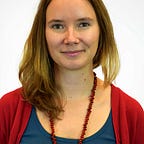Growing seeds of food system transformation
On the 9th of March we hosted Rapid Transition Lab’s first workshop in Stockholm. Fourteen actors from across the Swedish food system came together to discuss the burning question of how the pandemic can help us to rapidly transition towards sustainable, healthy and just food systems?!
The workshop imagined how “seeds” of positive food futures could grow and be combined in new ways. Before the workshop, participants were instructed to bring a “seed”, which was defined as an innovation or initiative that 1) exists in the margins of the food system today, 2) has emerged during or been strengthened by the pandemic, and 3) has potential to contribute to sustainable and healthy food systems in Sweden. The method we used is based on the methodology for developing alternative positive future scenarios in the Seeds of Good Anthropocenes project. It has been used in Stockholm before, as well as other places around the world, such as South Africa, Japan and Canada. We adapted the method by linking it to the Covid-19 pandemic. The participants were divided into groups where they presented the seeds to each other and chose three to continue working with (Step 1). They then imagined the mature condition of the three seeds and what the future food system would look like (Step 2, see Figure 1). In the end, they discussed connections between the three mature states, creating “the new forest” (Step 3, see Figure 2), and identified barriers and enabling factors in order to move towards it (Step 4).
The method and material worked well. The participants liked the idea of the seeds and brought a wide variety of them to the workshop. They all provided interesting starting points for the discussions. Not all the seeds were directly connected to the impacts from Covid, and a few represented broader observations of changes, rather than concrete examples of initiatives.
The workshop took place just after Covid restrictions had been lifted in Sweden. People reported that they were energized by meeting new people once again, and they brought that positive energy to the discussions. It was an intense day, and more time to flesh out the mature states of the seeds would have been appreciated by several groups. Nevertheless, the well thought out layout of the workshop material and program encouraged participants to engage more fully in the discussions. You can access the workshop canvases we used here, which helped participants think about effects across different parts of food systems and value chains.
The method does not generate a consensus image of the future, but rather acts as a starting point for showing how diverse, existing ideas can grow and be recombined in a new way — a so-called ‘Bricolage’ (see for example Frances Westley’s work on social innovation and resilience). This brought out different tensions between participants’ views, such as if we should work within the existing economic paradigm or not, or if the future should be high or low tech. Skillful group facilitation helped to acknowledge these tensions and continue to collaborate and work around them.
The challenge we face now is how to develop actions based on this. Several participants expressed that they have imagined future scenarios and visions before and that it is important to not stop there. We agree.
We are now in the stage of analyzing and reflecting on the workshop results, while we are preparing for the next workshop. That workshop will focus on developing a portfolio of experiments and actions around key issues that came up in the first workshop. Getting to concrete actions with a diverse group of independent actors in a short amount of time is a big challenge. At the same time, we do believe that these engaged entrepreneurs and change agents are in good positions to affect positive change together. Follow this space for more updates on how this project proceeds.
